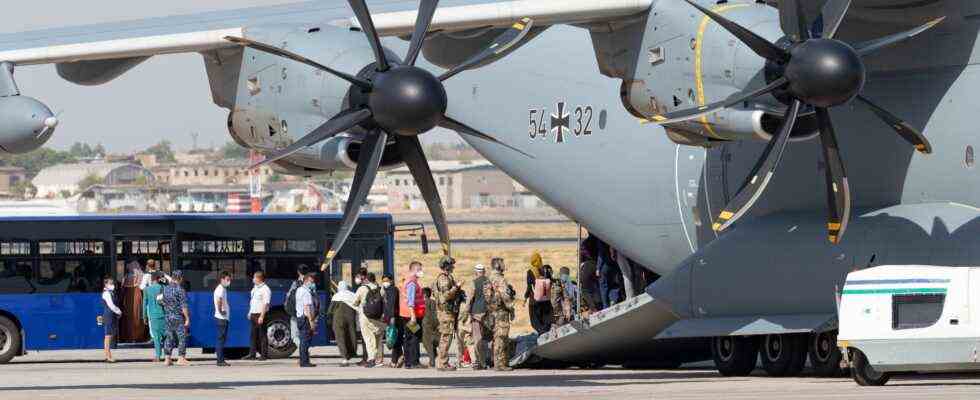As of: 08/27/2021 7:24 pm
The debacle in Afghanistan sparked a debate about Europe’s ability to act. EU politicians are calling for evacuation missions to be possible in future without US aid. How realistic is that?
In 2009 the EU states agreed to support each other in evacuating their citizens in crisis situations. In practice, however, according to the green European politician Reinhard Bütikofer, it has been shown again that there are deficits not only in cooperation:
It must be possible for the EU countries to jointly secure an airport in order to carry out a humanitarian evacuation operation.
The MEP Michael Gahler can only agree. The CDU politician is the security policy spokesman for the EPP parliamentary group and points out that the so-called battle groups have existed for over 15 years. EU combat troops that are provided on a rotating basis by different member states. There would also be the military planning and command staff:
In terms of scale, securing an airport would be something that the battlegroups could do. I think we should also seriously consider what we have already created when planning such situations. And don’t regret what we can’t do in retrospect.
However, this also brings a lot together, says Ronja Kemplin. She heads the EU External Relations research group at the Science and Politics Foundation. From her work, she knows that the 27 EU countries have already reached 50 percent of US military spending with their defense budget, but that their military capabilities are just a tenth in comparison:
This is because we procure nationally and not jointly, often at very high prices. In other words, the EU spends a lot of money, but gets very little military capabilities in return. And these are not enough to carry out evacuation operations, as they were necessary in Kabul these days.
There is a lack of capacity to relocate sufficient personnel and material within a few days. In addition, the EU would be de facto blind without the US forces, explains the expert:
What is the situation on site, who is where, which targets are dangerous? The EU states receive all this information exclusively from the USA. Not together as an EU, but each member state has individual contracts with the USA and therefore receives its own so-called situation picture.
In addition, the EU always needs the approval of all 27 member states in its security and defense policy. And that’s a problem, says Martin Schirdewan. At the same time, the co-chairman of the left-wing parliamentary group in the EU Parliament is convinced that EU foreign policy must always be based on humanitarian and development policy guidelines and not rely on a military union:
Nevertheless, one has to discuss in a meaningful way whether the principle of unanimity is actually helpful in foreign policy issues or whether we should not arrive at a majority principle.
The dramatic events at the airport in Kabul are not only fueling the debate in parliament about strengthening Europe’s ability to act and shape crisis situations. For example, the EU Commission announced through its spokesman that the lessons from the events in Afghanistan would be dealt with after the evacuations were completed.
Europe’s lesson from the Afghanistan debacle
Matthias Reiche, ARD Brussels, August 27, 2021 6:16 p.m.

